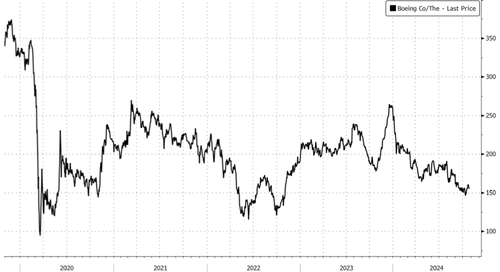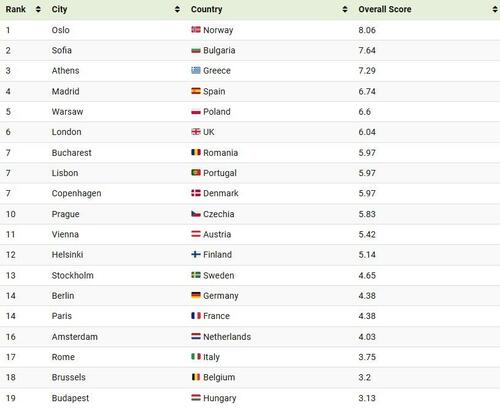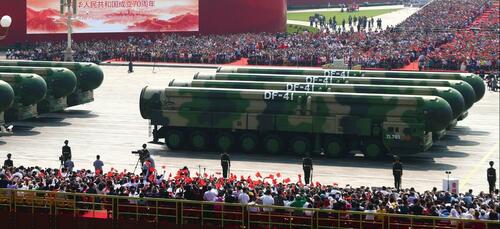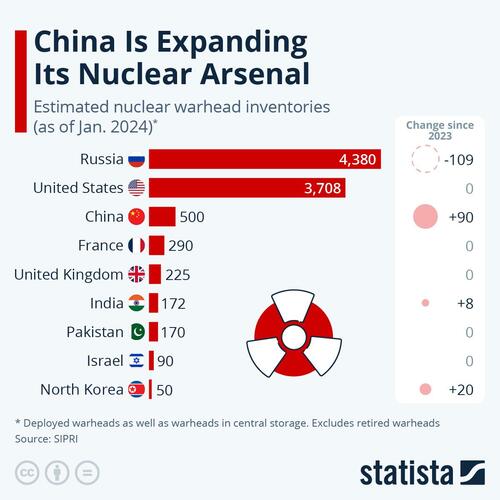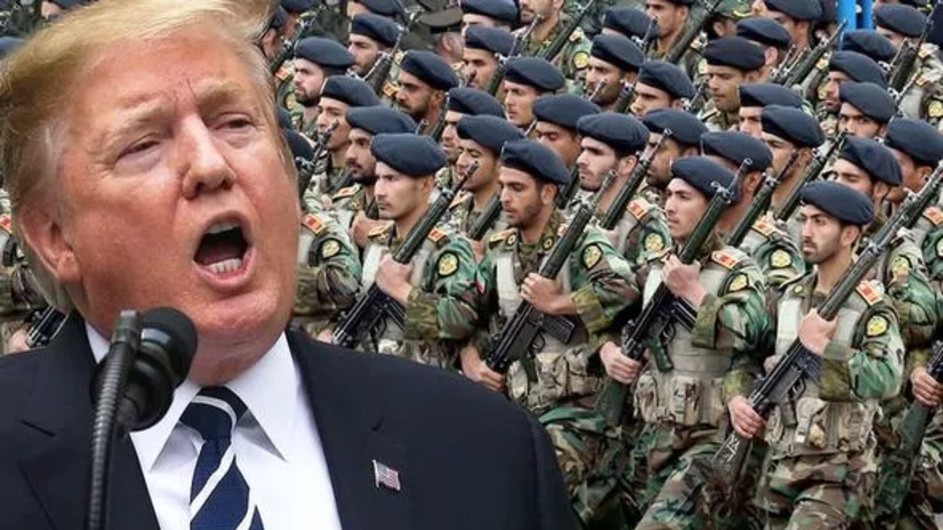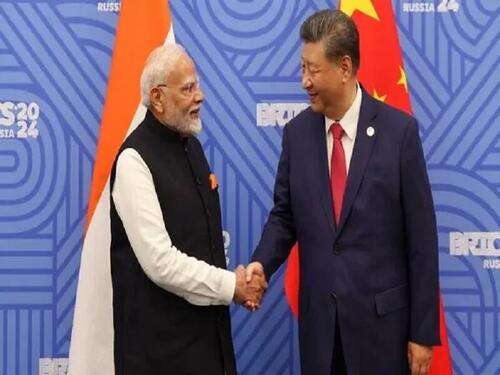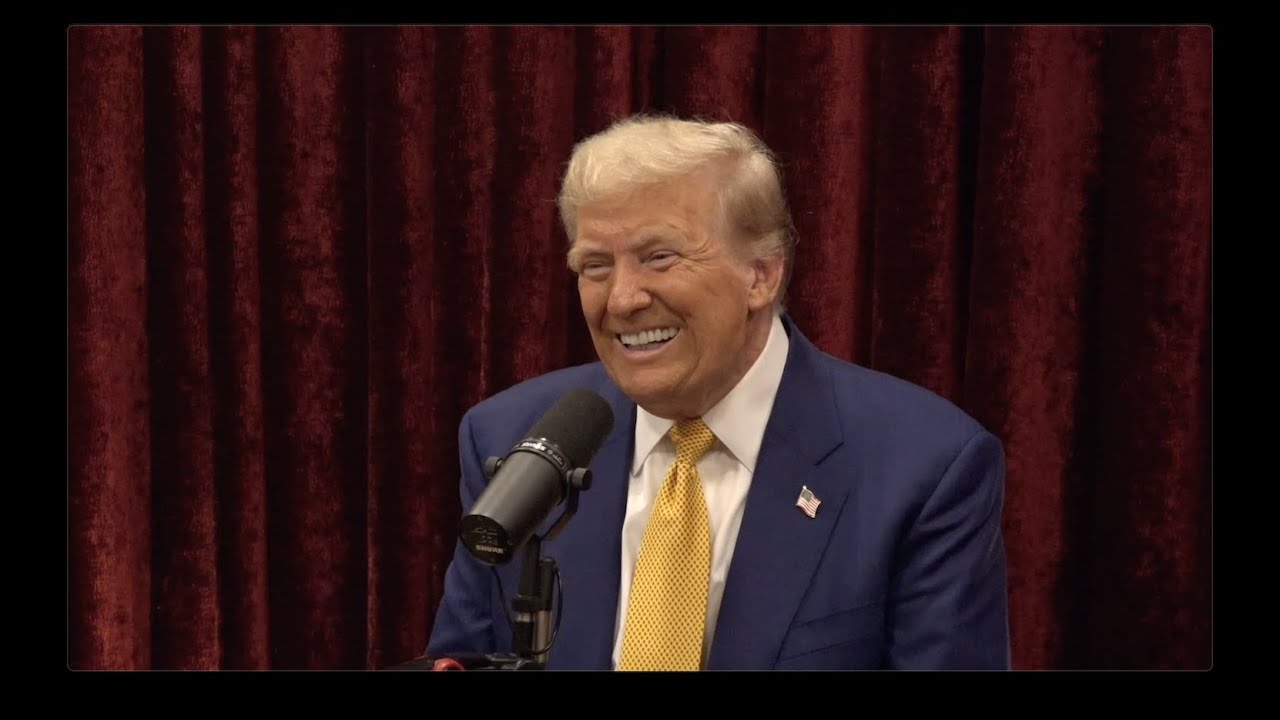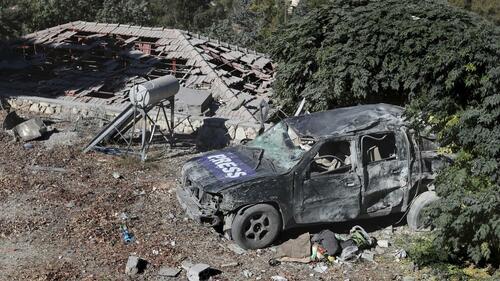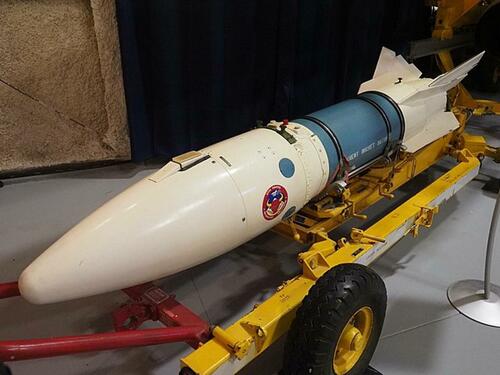Boeing Offers 90 Million Shares & $5 Billion Depositary Shares To Boost Liquidity
Boeing Offers 90 Million Shares & $5 Billion Depositary Shares To Boost Liquidity
Update:
Boeing’s money raise officially hit this AM. The offering: 90 million shares of common stock and $5 billion in depositary shares.
Goldman Sachs, BofA Securities, Citigroup, JPMorgan are leading the deal as joint bookrunning managers for both offerings.
The Boeing Company [NYSE: BA] (“Boeing” or the “Company”) announced today the launch of concurrent separate underwritten public offerings of (i) 90,000,000 shares of common stock, par value $5.00 per share (“Common Stock”) of the Company and (ii) $5 billion of depositary shares (“Depositary Shares”), each representing a 1/20th interest in a share of newly issued Series A Mandatory Convertible Preferred Stock, par value $1.00 per share (“Preferred Stock”), of the Company (together, the “Offerings”). Boeing expects to grant to the underwriters of the Offerings a 30-day option to purchase up to an additional (i) 13,500,000 shares of Common Stock and (ii) $750 million of Depositary Shares, solely to cover over-allotments, if any. Boeing intends to use the net proceeds from the Offerings for general corporate purposes, which may include, among other things, repayment of debt, additions to working capital, capital expenditures, and funding and investments in the Company’s subsidiaries.
Holders of the Depositary Shares will be entitled to a proportional fractional interest in the rights and preferences of the Preferred Stock, including conversion, dividend, liquidation and voting rights, subject to the provisions of a deposit agreement. The Preferred Stock is expected to have a liquidation preference of $1,000 per share. Unless earlier converted, each share of Preferred Stock will automatically convert, for settlement on or about October 15, 2027, into a variable number of shares of Common Stock based on the applicable conversion rate, and each Depositary Share will automatically convert into a number of shares of Common Stock equal to a proportionate fractional interest in such shares of Common Stock. The dividend rate, conversion terms and other terms of the Preferred Stock will be determined at the time of pricing of the offering of the Depositary Shares. Currently, there is no public market for the Depositary Shares or the Preferred Stock. Boeing intends to apply to list the Depositary Shares on the New York Stock Exchange under the symbol “BA.PRA.”
* * *
Boeing shares moved lower in premarket trading in New York after a Bloomberg report revealed a capital raise could take place as soon as Monday. This would prevent credit rating agencies from downgrading Boeing’s investment-grade credit rating to speculative territory amid dwindling cash reserves and a drawn-out strike.
Three sources familiar with the matter said the beleaguered airplane maker, plagued by a months-long strike, could raise as much as $15 billion, adding the amount could change depending on demand.
Boeing’s advisers have been lining up a funding deal for weeks.
These are dire times for Boeing…
-
Oct 1: Dilution Fears: Boeing Considers $10 Billion In New Shares As Strikes Strain Liquidity
-
Oct 15: Boeing Desperate For Liquidity, Files $25 Billion Shelf Registration
-
Oct 20: Boeing Explores Asset Sales In Potential Shrinking Of Corporate Footprint
The people noted that the transaction will likely consist of a combination of common shares and a mandatory convertible bond. About two weeks ago, the planemaker filed a $25 billion shelf registration.
At the time, Boeing wrote in the shelf filing: “This universal shelf registration provides flexibility for the company to seek a variety of capital options as needed to support the company’s balance sheet over a three-year period.”
The latest strike estimates from JPMorgan analysts indicate Boeing will lose $1.5 billion each month if workers stay off the production lines of commercial jets and continue picketing in the streets. Three major rating agencies have warned that the strikes could downgrade Boeing’s investment-grade credit rating to speculative territory, in other words, ‘junk.’
Last month, CFO Brian West told analysts at the Morgan Stanley conference that Boeing “will take any necessary actions” to preserve its investment grade rating and beef up its balance sheet.
“We are perfectly comfortable to supplement our liquidity position to support those two objectives,” West told investors when asked about future money raises.
Goldman analysts Noah Poponak and Anthony Valentini recently told clients:
“The company faces a balance sheet question, and has suggested raising capital is possible given the importance of the credit rating. We assume Boeing raises $12bn of equity before year-end, which matches the total maturities due in 2025 + 2026, and keeps the cash balance well north of $10bn in the near-to-medium-term while they ramp back up commercial deliveries and strive to resolve defense profitability.”
Bloomberg noted:
“Boeing needs the capital infusion to maintain its investment-grade rating and fund its eventual recovery from a crippling strike, now in its seventh week. The company is on pace to use around $4 billion in cash during the fourth quarter, which would bring its free-cash outflow to around $14 billion for the year. The planemaker expects to continue burning cash through the first half of next year as it restarts its airplane factories, including the assembly lines for its cash-cow 737 Max jetliner.”
In markets, Boeing shares are lower by about 1% in premarket trading…
At all costs, Boeing must protect its investment-grade rating.
Tyler Durden
Mon, 10/28/2024 – 07:20
Korybko: Brazil’s Veto Of Venezuela’s BRICS Bid Exposes Multipolar Rift
Korybko: Brazil’s Veto Of Venezuela’s BRICS Bid Exposes Multipolar Rift
Authored by Andrew Korybko via Substack,
Brazil’s ruling Workers’ Party (PT per its Portuguese abbreviation) has presented itself as an Ibero-American champion of multipolarity since its inception, as has its leader President Lula since his first term began in 2003, but these narratives are now challenged like never before after last week.
Brasil de Fato cited diplomatic sources to report that Brazil vetoed Venezuela’s BRICS partnership request while Putin also acknowledged during a press conference that Russia and Brazil disagree on Venezuela.
This outcome was made all the more scandalous by Lula’s unexpected “head injury” that was allegedly responsible for him not flying to Kazan and Venezuelan President Maduro’s surprise visit to the event. Lula might have either made-up his injury or exaggerated it in order not to embarrass himself any further by arguing in person against his multipolar neighbor’s requested BRICS partnership. He might also have caught wind of Maduro’s plans and thus ducked out in order to avoid a potential confrontation there.
In any case, one of the world’s top energy producers wasn’t able to achieve the consensual support required for partnering with the world’s top financial multipolarity platform, though this analysis here from last month explains how non-members and -partners can still coordinate their associated policies with BRICS. Be that as it may, it was still a blow to Venezuela’s prestige not to be inaugurated as an official partner, but Lula’s PT harmed its own reputation in a much worse way by reportedly vetoing this.
Keeping in mind the abovementioned insight about how any country can voluntarily coordinate its associated policies with BRICS even in the absence of formal membership or partnership status, Brazil could have let Venezuela join in order to keep up the PT’s charade about being a multipolar champion. Instead, it maliciously prevented this, which only served to virtue signal support for the US’ ruling Democrats’ shared policy towards that country at the expense of the trust that Brazil built within BRICS.
It was explained in August how “Ortega’s Condemnation Of Lula’s Meddling In Venezuela Debunks A Top Alt-Media Lie”, which hyperlinked at the end to a list of over 50 related analyses from October 2022 till then about Lula’s post-imprisonment ideological alignment with that aforesaid imperialist party. In brief, he and his party were never true multipolar champions like they presented themselves as, but were always more akin to “social democrats” or what’s been called the “compatible left” by traditional leftists.
All the while, however, the PT’s social media influencers and cultish clique of supporters across the world aggressively gatekept the false narrative that their “heroes” pushed. This most often took the form of viciously “canceling” anyone who dared to even remotely question this debunked dogma. This charade was thus kept up until last week when it became impossible to deny that Lula’s PT had betrayed regional multipolar leader Venezuela solely to curry favor from what might soon be the US’ outgoing ruling party.
There shouldn’t be any question about the veracity of Brasil de Fato’s diplomatic sources either after Venezuela’s Foreign Ministry came out with an official statement slamming Lula’s veto. They described it as an “immoral aggression” that “reproduce[ed] the hatred, exclusion and intolerance promoted from the centres of power in the West.” They then added that “The Venezuelan people feel indignation and shame” after what Lula just did. These are very strong words that should be taken very seriously.
Readers should also know that while Lula hasn’t acknowledged Maduro’s re-election, Putin proudly thundered during last week’s event that “Venezuela is fighting for its independence, for its sovereignty…We believe that President Maduro won the elections, won fairly. He formed a government.” His words threw the PT onto the horns of yet another narrative dilemma by suggesting that Brazil’s stance is against another fellow Global South country’s “independence” and “sovereignty”.
The Venezuelan Question is therefore a black-and-white issue: one either supports Lula and Biden’s regime change efforts in Venezuela, with each advancing this in their own but still coordinated way, or they support Maduro and Putin’s defense of Venezuela’s independence and sovereignty.
There’s no middle ground no matter what lies top PT influencers might soon spew. Honest members from the Alt-Media Community will accurately report this while dishonest ones will keep covering up for the PT.
Tyler Durden
Sun, 10/27/2024 – 23:20
Martin Armstrong Sees Trump “Landslide”; Fears Desperate Deep State Wants War & Martial Law
Martin Armstrong Sees Trump “Landslide”; Fears Desperate Deep State Wants War & Martial Law
Via Greg Hunter’s USAWatchdog.com,
Legendary financial and geopolitical cycle analyst Martin Armstrong says we are getting down to the wire with the 2024 Election, and the Deep State Dems are in panic mode.
Could we have a false flag, martial law, debt crisis, default, war or all of the above?
Armstrong says,
“They want war. There is no question about that… Lindsey Graham was on Face the Nation a couple of months ago, and he slipped and told the truth for once.
I was shocked that he actually slipped and told the truth for once. He said there was a $10 trillion to $12 trillion natural gas asset under Crimea, and we can’t allow Russia and China to get that…
This is like Iraq. We are going after the oil.”
On martial law, Armstrong says, “I am very concerned about martial law…”
“They (Supreme Court) have kind of hinted that martial law is a common law type thing. When the courts are closed, then you have martial law. It is justified under ‘necessity.’ This is what the Supreme Court has said. So, I am very concerned that these neocons are so desperate that they are definitely going to try to create some sort of a false flag or anything they can do perhaps the last week in October going into the election.”
On the war front, we just had Israel bomb Iran, and NATO is still poking Russia. Armstrong says,
“NATO is a retirement home for neocons. It should have been shut down. They are trying to take the world into World War III.
They are now raising a $100 billion so they can continue the war against Russia in case Trump is elected.”
Armstrong is still seeing Trump winning in 2024 in a “landslide.” Kamala Harris is going the other way. A few months back, Armstrong said Kamala’s real approval rating was 10.5%. Armstrong says he just ran new Kamala Harris approval ratings with his Socrates computer program.
Armstrong says, “It’s actually down to 6.5% to 7.5%. It’s really appalling.”
Armstrong says Kamala has “negative coattails,” which will spell big losses for Democrats down ballot in November.
On the economy, Armstrong says,
“We are in this debt Ponzi scheme where they issue new debt every year to pay off the old debt. People say the debt is $34 trillion, but the level of the debt does not matter. It could be a quadrillion dollars…
China holds 10% of America’s debt. They sold $53 billion at the beginning of the year. This is where the danger comes. If you don’t have someone to take up what China is not buying, guess what? You can’t pay, and when you can’t pay, that’s when a default comes. This is why they want war . . . so they can default on everything…
They take us to war, and there goes Social Security and everything else.”
On the 2024 Election, Armstrong says,
“The 2024 Election will be the last election. . . . The US will break up into three or four sections. . . .
We are committing suicide. . . . This is how governments die. . . .
Gold goes up when people lose confidence in government. This is why central banks want gold.
They are afraid of governments defaulting on their debt in war…
In the war, we lose it next time. They want terrorism so they can lock us down. This is the future we face.”
There is much more in the 1-hour and 3-minute interview.
Join Greg Hunter of USAWatchdog.com as he goes One-on-One with Martin Armstrong as he gives his analysis on martial law, debt default and world war for 10.26.24.
* * *
To Donate to USAWatchdog.com Click Here
If you want to attend Armstrong’s 2024 World Economic Conference in Olando, FL, Nov. 8, 9 & 10, 2024, or register for streaming of the event, click here.
There is free information, analysis and articles on ArmstrongEconomics.com.
Tyler Durden
Sun, 10/27/2024 – 17:30
These Are The Best Metro Systems Across European Capital Cities
These Are The Best Metro Systems Across European Capital Cities
Metro stations are essential to urban life, but their quality and level of modernization vary across Europe’s capital cities.
High-quality transportation networks play a crucial role in driving business productivity by enhancing mobility and expanding access to a broader labor pool. Moreover, investment in metro systems is connected with higher foreign direct investment. These investments boost a city’s appeal by improving commuting speed and accessibility.
This graphic, via Visual Capitalist’s Dorothy Neufeld, ranks the metro systems of European capital cities, based on data from Bounce.
Methodology
For the ranking, metro systems across 19 European capital cities were scored according to the following metrics:
-
Number of stations
-
Annual ridership
-
Distance covered
-
Google review scores
-
The share of positive and negative online reactions to articles about each metro system
Due to travel advisories, Belarus, Ukraine, and Russian capitals were excluded. Overall, metro systems were measured out of a score of 10.
Norway is Home to Top Metro System in European Capitals
Oslo, the capital of Norway, tops the list with 101 metro stations across its transit network.
In 2023, it became the first metro system in the world to operate entirely on electric power. As the largest network in Scandinavia, Oslo’s metro stations earned an average Google review score of 4.13 out of 5 stars, with users often saying they were “very well organized” and “easy to get around”.
Sofia, Bulgaria, claims second place with the newest metro system among European capitals, established in 1998.
In contrast, the London Underground, built in 1863, holds the title of the world’s oldest metro system. Today, the London Underground emits 84% fewer carbon emissions per passenger than a gasoline car, and it’s on track to be fully powered by renewables by 2030. Overall, London’s metro system ranks sixth among European capitals.
Copenhagen’s automated metro runs 24/7, with trains arriving every two minutes during most of the day. Despite placing seventh on the list, it is frequently recognized as the world’s best metro system due to its exceptional reliability.
At the other end of the spectrum, Budapest’s metro system ranks last, with 75% of online reactions to transport-related news articles being negative. Passengers have described some metro stations as “rather unpleasant,” with cleanliness often cited as a major concern.
To learn more about this topic from a global perspective, check out this graphic on different transportation methods around the world.
Tyler Durden
Sun, 10/27/2024 – 07:35
US Intelligence Says China Leading ‘Rapid Expansion’ Of Nuclear Arsenal
US Intelligence Says China Leading ‘Rapid Expansion’ Of Nuclear Arsenal
On Wednesday the US Defense Intelligence Agency (DIA) issued a new public intelligence estimate entitled “Nuclear Challenges 2024”.
The detailed 194-page document includes an overview of chief nuclear-armed powers and rivals of the United States, focusing especially on countries with “mature nuclear weapons programs” which are said to be “increasing stockpiles” or else “modernizing their legacy stockpiles by incorporating advanced technologies to penetrate or avoid missile defense systems” – such as North Korea.
“Countries are also developing nuclear weapons with smaller yields, improved precision, and increased range for military or coercive use,” the DIA says.
One nation’s program is gaining the most attention as a result of the DIA report, and that’s China. The intelligence agency assesses the country under President Xi is undergoing a huge and rapid expanse of its nuclear arsenal, which is the biggest in its history, assuming the projection is accurate.
The “Nuclear Challenges 2024” assesses that China is on track to possess more than 1,000 operational nuclear warheads by 2030.
The report contextualizes that this accelerated growth is being drive primarily by China’s strategic competition with the Untied States.
Below is a section providing the DIA’s bird’s eye view summary of China’s nuclear arsenal plans and expansion:
China. Beijing has far surpassed earlier growth estimates assessed in 2018, and is currently exceeding 500 deliverable nuclear warheads in its stockpile. By 2030, we estimate that China will have more than 1,000 operational nuclear warheads— most of which will be fielded on systems capable of ranging the continental United States. China probably also seeks lower-yield nuclear warhead capabilities to provide proportional response options that its high-yield warheads cannot deliver. For example, China is increasing its stockpile of theater-range delivery systems, such as the DF-26 intermediate-range ballistic missile (IRBM).
Below is a current snapshot of the global nuclear stockpile situation, as it stood by middle of this year…
You will find more infographics at Statista
As Statista’s Anna Fleck reports, currently, there are estimated to be 9,585 nuclear warheads in military stockpiles for potential use across nine countries, with Russia and the U.S. accounting for 8,088 of these.
There are also an estimated 2,536 retired warheads that are yet to be dismantled. China has added 90 nuclear warheads to its arsenal since January 2023, increasing from 410 warheads to 500.
This is according to data from the peace research institute SIPRI. India and North Korea have also expanded their arsenals, bringing their total figures to an estimated 170 warheads and 50 warheads, respectively.
The two European nuclear powers, France and the UK, together have 515 operational nuclear warheads. With the exception of North Korea, none of the nations in possession of nuclear warheads have tested them since the 1990s.
Tyler Durden
Sat, 10/26/2024 – 22:45
Army Releases Redacted Report On Incident During Trump Visit To Arlington Cemetery
Army Releases Redacted Report On Incident During Trump Visit To Arlington Cemetery
Authored by Caden Pearson via The Epoch Times (emphasis ours),
The U.S. Army on Friday released a heavily redacted report related to an alleged altercation during former President Donald Trump’s visit to Arlington National Cemetery in August.
According to multiple reports, on Aug. 26 a cemetery staffer attempted to block the Trump campaign from taking photos and videos in Section 60, where soldiers recently killed in Afghanistan and Iraq are buried. A U.S. Army statement at the time said the employee was “abruptly pushed aside.”
Trump was there to mark the anniversary of the Kabul airport attack that killed 13 U.S. service members.
Seven pages of redacted material were released in response to a Freedom of Information Act request filed by the Washington-based nonprofit group American Oversight as part of an ongoing lawsuit.
The redacted incident report classifies the alleged offense as “simple assault.” It outlines an alleged physical altercation between a cemetery employee and Trump aides.
A brief description says that an individual engaged “with both of [redacted] hands while attempting to move past [redacted] did not require medical attention on scene and later refused when offered. [Redacted] rendered a sworn statement on a DA Form 2823 and stated [redacted] did not want to press charges. Investigation continues by JBMHH PD Investigations Branch.”
The sworn statement of the incident, made at 1:45 p.m. on Aug. 26, is fully redacted.
In response to reports detailing the incident that cited anonymous sources, the Trump campaign issued a statement accusing the cemetery employee of experiencing a “mental health episode” and attempting to “physically block members of President Trump’s team during a very solemn ceremony.”
The Army defended the employee, noting they acted “with professionalism” in enforcing regulations that prohibit political activities on cemetery grounds. Officials stated that while the incident was reported to law enforcement, the employee ultimately chose not to pursue charges.
The Army confirmed that it “considers this matter closed,” concluding that the staff member’s actions were appropriate and consistent with cemetery decorum.
U.S. District Court of the District of Columbia Senior Judge Paul Friedman signed an order on Oct. 22 for the report to be released. In September, American Oversight, arguing that there was a compelling public interest in sharing information with the public as soon as possible, requested that Arlington expedite the processing of its request, noting the presidential election is drawing closer.
American Oversight was founded in 2017 in response to what it says were the “unprecedented challenges that the Trump administration posed to our nation’s democratic ideals and institutions.”
Friedman ruled on Oct. 22 that the Army must release nonexempt portions of records about the requested incident on or before Oct. 25.
“With the election just two weeks away, the American people have a clear and compelling interest in knowing how the government responded to an alleged incident involving a major presidential candidate who has a history of politicizing the military,” Chioma Chukwu, American Oversight’s interim executive director, said in a statement following Friedman’s order.
After the initial incident, an Arlington National Cemetery spokesperson told The Epoch Times that a report had been filed but provided no further details, citing laws against political campaign or election-related activities in military cemeteries.
The Trump campaign disputed reports of a “physical altercation,” asserting they were prepared to release footage to counter any “defamatory claims.” Spokesperson Steven Cheung stated that a private photographer was permitted on the grounds and that an individual, allegedly experiencing a mental health episode, tried to block Trump’s team during the ceremony.
Family members of fallen soldiers in Afghanistan also denied claims of an assault, stating no altercation took place.
The U.S. Army oversees the management of Arlington National Cemetery.
Katabella Roberts contributed to this report.
Tyler Durden
Sat, 10/26/2024 – 17:30
The Atlantic Council Has Big Plans For A War Between The US And Iran
By Brandon Smith Globalists as an organized entity have a habit of shifting their efforts between various false-front institutions in…
The post The Atlantic Council Has Big Plans For A War Between The US And Iran appeared first on Alt-Market.us.
The US Was Inadvertently Responsible For The Sino-Indo Border De-Escalation Deal
The US Was Inadvertently Responsible For The Sino-Indo Border De-Escalation Deal
Authored by Andrew Korybko via Substack,
India announced earlier this week that it and China agreed to patrol their disputed border area in the way that it was before June 2020’s lethal Galwan River Valley clashes. This was made possible by China finally complying with India’s long-standing request, which in turn paved the way for their leaders to hold a bilateral meeting on the sidelines of this week’s BRICS Summit in Kazan. What many don’t realize, however, is that the US was inadvertently responsible for facilitating their deal.
This analysis here from early May explains how summer 2023’s scandal about an alleged Indian assassination attempt against a Delhi-designated terrorist-separatist with dual American citizenship on US soil was a turning point in their ties. The US then continued with its good cop, bad cop game against India prior to pushing Canada to escalate its related dispute with India earlier this month. Even before the latest developments, however, Indo-US ties had already noticeably soured over this issue.
India and China held multiple rounds of talks on their disputed border since 2020, but no breakthrough had occurred until Indo-US ties became characterized by distrust as a result of summer 2023’s scandal and all that followed. China realized that those two’s previous level of trust will never return, which assuaged its concerns that India is playing a leading role in the US’ containment policy. It was this shift in perceptions that then led to China reconsidering its informal policy towards their border dispute.
China had been reluctant to return to the status quo ante bellum since this was seen as a unilateral concession that could signal weakness and worsen its hand in the South China Sea. The drastic downturn in Indo-US ties, however, led to the aforesaid being perceived as a pragmatic means for managing the abovementioned concerns about India containing China in coordination with the US. The improvement of Sino-Indo ties could therefore place limits on the future improvement of Indo-US ones.
Finally complying with India’s long-standing request for resolving their post-Galwan tensions and consequently placing their partnership back on track amidst the dramatic downturn in Indo-US ties could preclude the possibility of India participating in the US’ containment scheme. No improvement in Indo-US ties would occur at the expense of Sino-US ones if that happens after this sensitive problem is finally patched up by then and India thus no longer has the same threat perception of China as before.
China and India have natural economic complementarities, and if the world’s two largest countries ever found a way to unleash their full mutual potential upon resolving their sensitive territorial issues and correspondingly restoring mutual trust, then global affairs would begin to revolve around them. That’s why the US has sought to divide-and-rule them through information warfare and its Kissingerian “triangulation” policy, but this failed after it went too far pressuring India over summer 2023’s scandal.
About that, the US never respected India as an equal partner and instead sought to subjugate it as a vassal by demanding that India comply with the West’s unilateral sanctions against Russia, which was unacceptable for both economic and principled reasons. The US also feared India’s astronomical rise as a Great Power since the start of the special operation, fueled to a large degree by discounted Russian energy, since this accelerated multipolar processes to the detriment of its unipolar hegemony.
That explains why it exploited summer 2023’s scandal to worsen their ties, meddled in this year’s earlier general elections, and even helped overthrow the Bangladeshi government a few months ago in order to pressure India into complying with these demands and then punishing it when this didn’t happen. Military and trade ties remain stable for now, but it can’t be taken for granted from India’s perspective that this will remain the case as their political ties continue to deteriorate over summer 2023’s scandal.
They can quietly manage their competition in Bangladesh and try to find a modus vivendi there, while the US’ meddling wasn’t direct nor intense enough like in other elections to seriously worsen their ties, which is why summer 2023’s scandal remains the most troublesome of their disputes. Instead of letting it subside, the US continues exacerbating it at periodic intervals, both on its own and via its Canadian proxy. This informed India that the US has malicious intentions and can never be fully trusted again.
Accordingly, India was therefore pleased that China finally decided to comply with its long-standing request for resolving their post-Galwan tensions and getting bilateral ties back on track, which showed the US that India will never become its vassal. Additionally, India also demonstrated that it’s influential enough to further accelerate multipolar processes to the detriment of the US’ unipolar hegemony as revenge for being mistreated, though its wayward partner still might not change its ways.
Even on the off chance that it does, the mutual trust that used to characterize their ties before summer 2023’s scandal will never return, thus ruling out the possibility that India will contain China in coordination with the US in the future. This is especially so after China just removed the primary irritant in their relations over the past four years that was responsible for driving the military dimension of Indo-US ties that prompted the People’s Republic to speculate that India was trying to contain it with the US.
In retrospect and provided that the incipient Sino-Indo rapprochement continues, the US’ pressure campaign against India might be seen as a game-changer due to how tremendously it’s poised to reshape the global systemic transition’s strategic dynamics. The meaningful improvement of Sino-Indo relations could lead them closer to unlocking their full mutual potential, which would revolutionize International Relations if successful and thus bring an even swifter end to the US’ unipolar hegemony.
Tyler Durden
Fri, 10/25/2024 – 23:25
Watch: Trump And Rogan Have A Wild Interview
Watch: Trump And Rogan Have A Wild Interview
Former President Donald Trump appeared on the Joe Rogan podcast Friday, where they discussed a wide range of topics for three hours.
Watch:
Highlights:
Getting rid of income taxes:
JOE ROGAN: “Did you just float out the idea of getting rid of income taxes and replacing it with tariffs? — Were you serious about that?”
DONALD TRUMP: “Sure, why not?” pic.twitter.com/VGLbUdk8j8
— America (@america) October 26, 2024
Hoaxes perpetrated against Trump:
Trump and Rogan GO OFF on the corrupt mainstream media spreading hoaxes such as the bloodbath hoax, the very fine people hoax, and the Russiagate hoax: pic.twitter.com/qZJcZsf8oM
— The Post Millennial (@TPostMillennial) October 26, 2024
Why Democrats are in favor of illegal immigration:
Donald Trump on the reason why Democrats are in favor of illegal immigration: “They hate our country, they’re stupid, or they want to buy votes. It’s one of those three.” pic.twitter.com/c0RDSLNkWW
— America (@america) October 26, 2024
Trump on bad White House hires:
🇺🇸 TRUMP: SOME OF MY ADVISORS TURNED OUT TO BE BULLIES AND IDIOTS
“It always comes back to the same answer.
The biggest mistake I made was I picked a few people I shouldn’t have picked.
Neo-cons, or bad people, or disloyal people, a guy like Kelly who’s a bit of a bully.… https://t.co/OBZTQgWXEp pic.twitter.com/X7ZQGVsqXN
— Mario Nawfal (@MarioNawfal) October 26, 2024
Keeping Iran, Hezbollah and Hamas in check:
Trump says he kept Iran, Hezbollah and Hamas in check by threatening China’s business interests in the US if they bought even one barrel of oil from Iran. pic.twitter.com/tlIl04yeMQ
— The Post Millennial (@TPostMillennial) October 26, 2024
The two discussed the horrible condition California is in thanks to Gov. Gavin Newsom:
“How about just keep your fucking house clean.”
Joe Rogan and Donald Trump slam Gavin Newsom for “cleaning up” San Francisco for Xi Jinping. pic.twitter.com/Vne8bu4KLO
— Mythinformed (@MythinformedMKE) October 26, 2024
Trump on getting shot:
Trump shows off his bullet scar to Joe Rogan: “It makes me a tougher guy.” 🤣 pic.twitter.com/7sglMnHdog
— Benny Johnson (@bennyjohnson) October 26, 2024
Trump on Musk:
Donald Trump on Elon Musk: “That guy is such a great guy… Starlink… He got it for them so fast, saved so many lives.” pic.twitter.com/N1bSbjoXPS
— America (@america) October 26, 2024
“Surreal” – On what it was like when Trump won the 1st time:
Donald Trump is a legend and a hero.
And if you don’t understand that, you are an idiot. pic.twitter.com/nHDrf2wUjY
— Viva Frei (@thevivafrei) October 26, 2024
“I want to be a whale psychiatrist” – Offshore windmills and how they affect whales:
TRUMP: “I want to be a whale psychiatrist.”
Trump discusses offshore wind mills with Joe Rogan. pic.twitter.com/8T4NpIDA3T
— Daily Caller (@DailyCaller) October 26, 2024
“You’ve said a lot of wild shit!” – Why Trump became so popular:
.@joerogan explains to Trump why he started to get so much media attention: “People were tired of someone talking in this bullsh*t, preprepared politician lingo.” pic.twitter.com/0Yh0hkeGZi
— Daily Caller (@DailyCaller) October 26, 2024
Trump on Barron:
Trump says that Barron is helping him with youth outreach.
“So I have a son—he’s very smart and tall. Barron. He knows all about you. He knows about guys I’ve never heard of…and I’ve gone up 30 points…with young people.” pic.twitter.com/sl59wHiwfm
— America 2100 (@America_2100) October 26, 2024
“Big pharma wasn’t thrilled” – Trump on pressure not to work with RFK Jr.:
Joe Rogan: “Do you have anyone that is pressuring you to not work with [RFK Jr]?”
Trump: “Yes…Big Pharma wasn’t thrilled.” pic.twitter.com/C7OPP2nivg
— America 2100 (@America_2100) October 26, 2024
Tyler Durden
Fri, 10/25/2024 – 23:06
Lebanon Expresses Outrage After Israeli Warplanes Strike Group Of Journalists: ‘War Crime’
Lebanon Expresses Outrage After Israeli Warplanes Strike Group Of Journalists: ‘War Crime’
Lebanon has accused Israel of committing a war crime after a group of journalists in south Lebanon came under attack by Israeli warplanes. Three journalists were killed during an air raid on a hotel or guesthouse in Hasbaya, about 50km south of Beirut and near the Syrian border.
BBC is reporting that “The attack was carried out on a guesthouse in a compound in Hasbaya being used by more than a dozen journalists from at least seven media organizations – with a courtyard containing cars clearly marked with ‘press’.
The three slain journalists worked for regional broadcasters Al-Manar TV and Al Mayadeen TV, which confirmed the deaths in statements, identifying the deceased as Ghassan Najjar, Mohammad Reda, and Wissam Qassem.
While Israel did not offer immediate comment, it might rationalize or seek to justify the killings given that Al-Manar is a Hezbollah-run news network, and Al Mayadeen is seen as pro-Iran.
But Lebanon’s Information Minister Ziad Makary charged that this was an intentional assassination of journalists.
“The Israeli enemy waited for the journalists’ nighttime break to betray them in their sleep… This is an assassination, after monitoring and tracking, with prior planning and design, as there were 18 journalists there representing seven media institutions. This is a war crime,” Makary wrote on X.
Other reporters, including from MTV Lebanon were present during the attack but escaped unscathed. “All official parties were told that this house was being used as a stay-house for journalists. We coordinated with them all,” an Al-Jadeed journalist described during a subsequent live broadcast from the location.
And an MTV Lebanon reporter, Youmna Fawwaz, detailed the following:
She said ceilings had fallen in on them, and they were surrounded by rubble and dust, with the sound of fighter jets overhead.
Each news organization had their own building in the compound, she said, and the building housing the Al Mayadeen reporters was “obliterated” while Al-Manar employees were inside.
Images from the bombed-out scene indeed show cars with large English markings indicating ‘Press’…
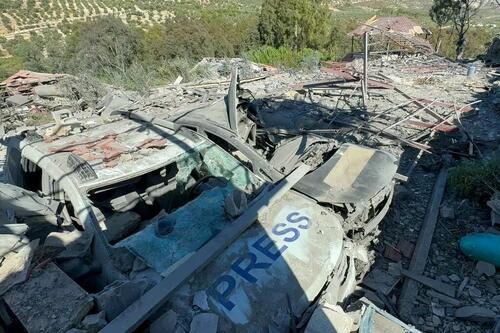
Fawwaz further accused Israel of conducting assassinations in order to prevent the Lebanese correspondents from covering the fighting in the south. “The airstrike was carried out on purpose. Everyone knew we were there. All the cars were labelled as press and TV. There wasn’t even a warning given to us,” she said.
Since the start of the conflict after Oct.7, 2023 – dozens of journalists have died – mostly in Gaza. Israel has particularly cracked down on Al Jazeera, expelling the Qatar-based network from Israel and the West Bank.
Tyler Durden
Fri, 10/25/2024 – 18:00

